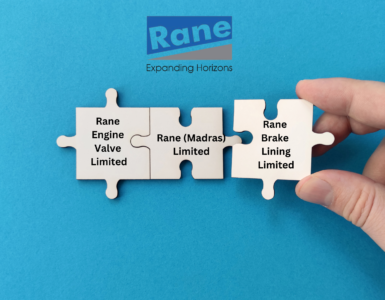China-based Alibaba Group is gradually on an acquisition spree to expand its footprints across the world. It is making its largest overseas investment with a $1 billion deal to acquire Lazada Group, which will take the e-commerce giant to Southeast Asia and closer to a goal of shedding its home-market reliance. The company will pay $500 million for new shares in the closely held company and purchase an equal amount from existing investors like Germany’s Rocket Internet SE and British supermarket chain Tesco Plc and Investment AB Kinnevik.
The deal also includes options to buy out certain Lazada shareholders in 12 to 18 months after the closure of the deal. The acquisition will beef up the Chinese internet giant’s presence in one of the world’s most-populated areas where e-commerce is booming. The deal will help the company to add sales of clothing and electronics in six Southeast Asian markets and will give access to a platform with a large and growing consumer base outside China, a proven management team, and solid foundation. The Southeast region is a tough market to crack with each country having its own nuances. Moreover, the region is close to China, which will enable Alibaba to use its logistics capabilities efficiently. So a solid partner will help Alibaba to get into the market smoothly and expand its business in new markets.
About Lazada
Founded in 2012 by Rocket, Lazada operates in Indonesia, Malaysia, the Philippines, Singapore, Thailand and Vietnam. The e-commerce market for business-to-consumer sales across all these six countries was $10.5 billion last year or 1.5% of retail volume, a population of 560 million and an estimated internet user base of 200 million, indicating large business potential in the future. Lazada is the fastest growing online department store known as Alibaba’s and Amazon’s counterpart in Southeast Asia. Lazada reported revenue jump 81% to $190 million in the first nine months of 2015. It has an active customer’s base of 7.3 million. Alibaba plans to integrate the business and introduce more existing merchants to Lazada to export their products overseas. Lazada works with third-party players and develops its own logistics to improve goods delivery to customers. By combining its regional presence with locally tailored capabilities in core areas like supply chain, logistics, and delivery, Lazada has developed a unique solution for global brands and distributors in the region.
Expanding global footprint
The deal represents a departure for Alibaba, which has mainly chosen to grow organically on its home turf. The company has huge cash sitting on its balance sheet and is seeking future growth drivers by acquisitions. As of 31 December 2015, Alibaba had cash and cash equivalents of $17 billion, according to the company’s quarterly earnings report. Moreover, the economic slowdown in China has affected its sales. In the last three months of 2015, the total value of goods transacted on the company’s e-commerce site rose by its slowest annual rate in more than three years.
The cash-rich company is the biggest spender on overseas acquisitions compared with other Chinese e-commerce players. It bought San Matego, a California-based company only to sell the niche e-commerce site a few years to rival online marketplace OpenSky when it failed to generate the synergy it was looking for in the deal. From Hong-Kong based newspaper to the broadcasting rights for rugby games, Jack Ma is investing in a wide spectrum of sectors. In e-commerce segment, Alibaba took shares of the US group-buying platform Groupon Inc and a number of small-time shopping sites. Jack Ma’s most prominent investment in the region was a year ago when he paid $249 million for a minority stake in Singapore Post Ltd, the city-state’s key postal service.
In India, Alibaba along with Japan’s SoftBank and Foxconn had invested $500 million in Snapdeal. It has also invested in Paytm. It is now looking to increase its footprint in India and is exploring acquiring stake in India’s largest e-commerce firm Flipkart. The talks, according to various news reports, are at a very initial stage and the likelihood of a deal will depend on Flipkart’s willingness to offer a discount on its current valuation of $15 billion. Flipkart’s valuation has soared five times to $15 billion since May 2014 when it raised $210 million from DST Global, Tiger Global Management, and others. Alibaba is also in talks with Snapdeal to invest more as the former is looking to benefit from India’s fast-growing online sector, boosted by a rise in the use of affordable smartphones and internet connections.
India is the world’s third-biggest smartphone market after China and the United States. While India has fewer internet users than China, online sales could rise to more than $100 billion in 2020 from $2.9 billion in 2014, making it the fastest-growing market globally, according to a Morgan Stanley report. Alibaba will certainly look for new opportunities in India to tap its vast potential and may even enter the India e-commerce sector on its own, after a surprise statement by the company’s group president J Michael recently that the company is planning to enter the e-commerce business in India this year. This has, of course, kept the Indian e-commerce players guessing on what its entry will mean to the existing entities and the sector.
Alibaba, it seems, it has a different strategy for local and overseas. Locally it prefers to grow organically while overseas it has chosen an inorganic route for growth. Though Amazon follows the organic model for its growth world over. For India, Alibaba seems to be going ahead with a minority stake in multiple e-commerce platforms.




